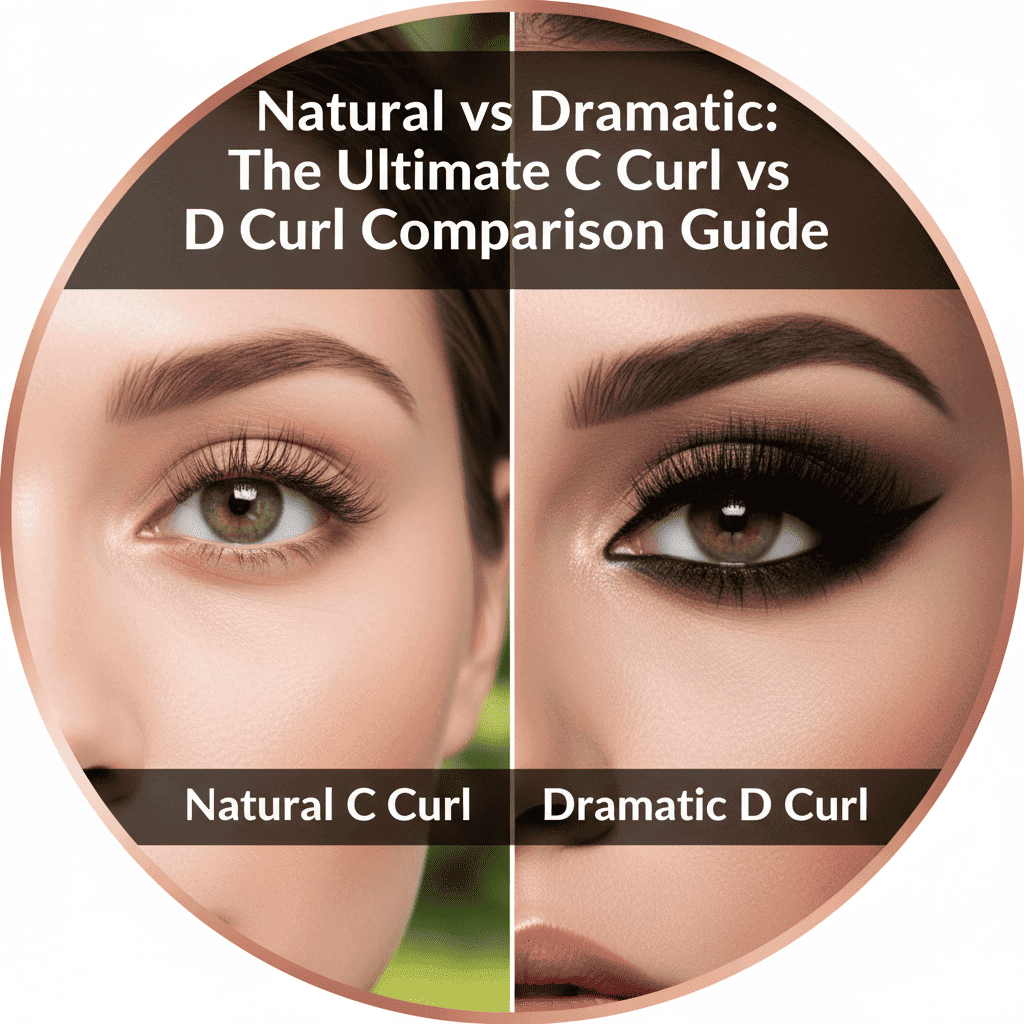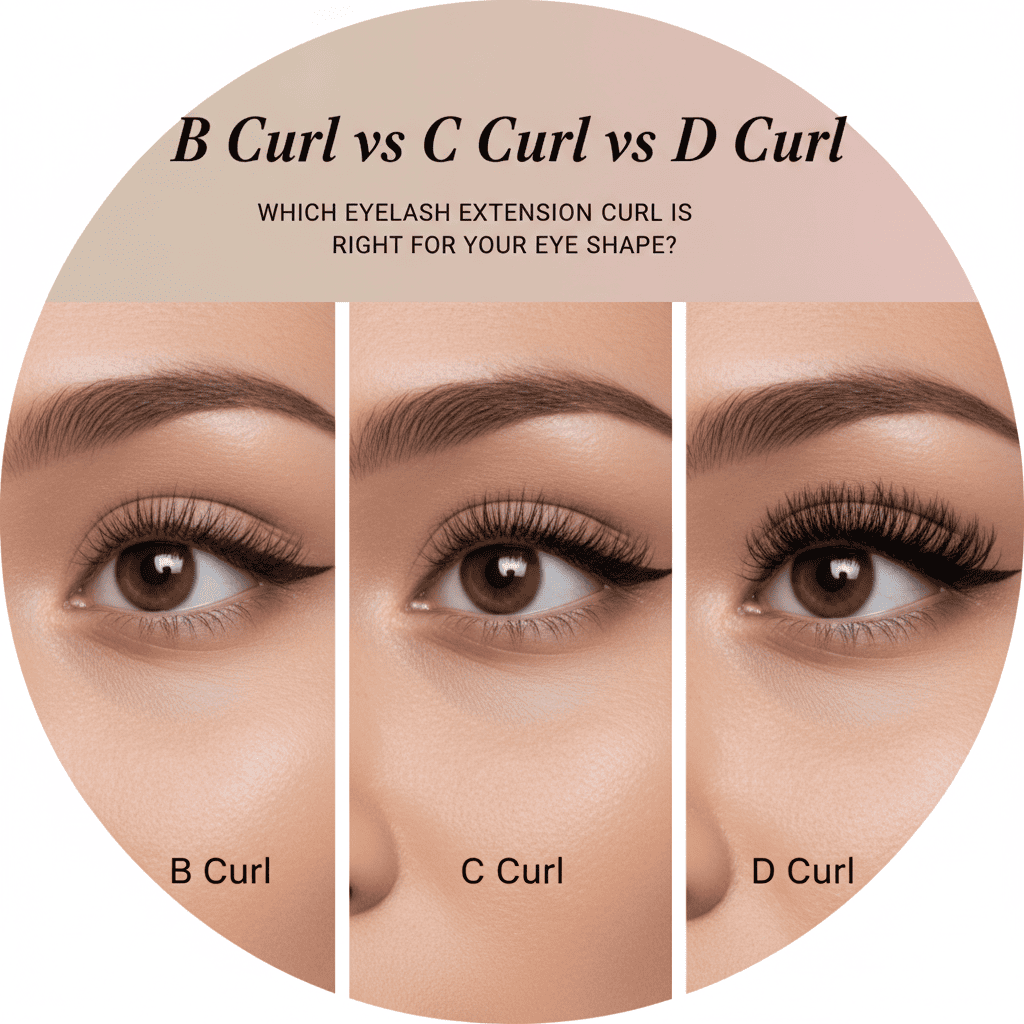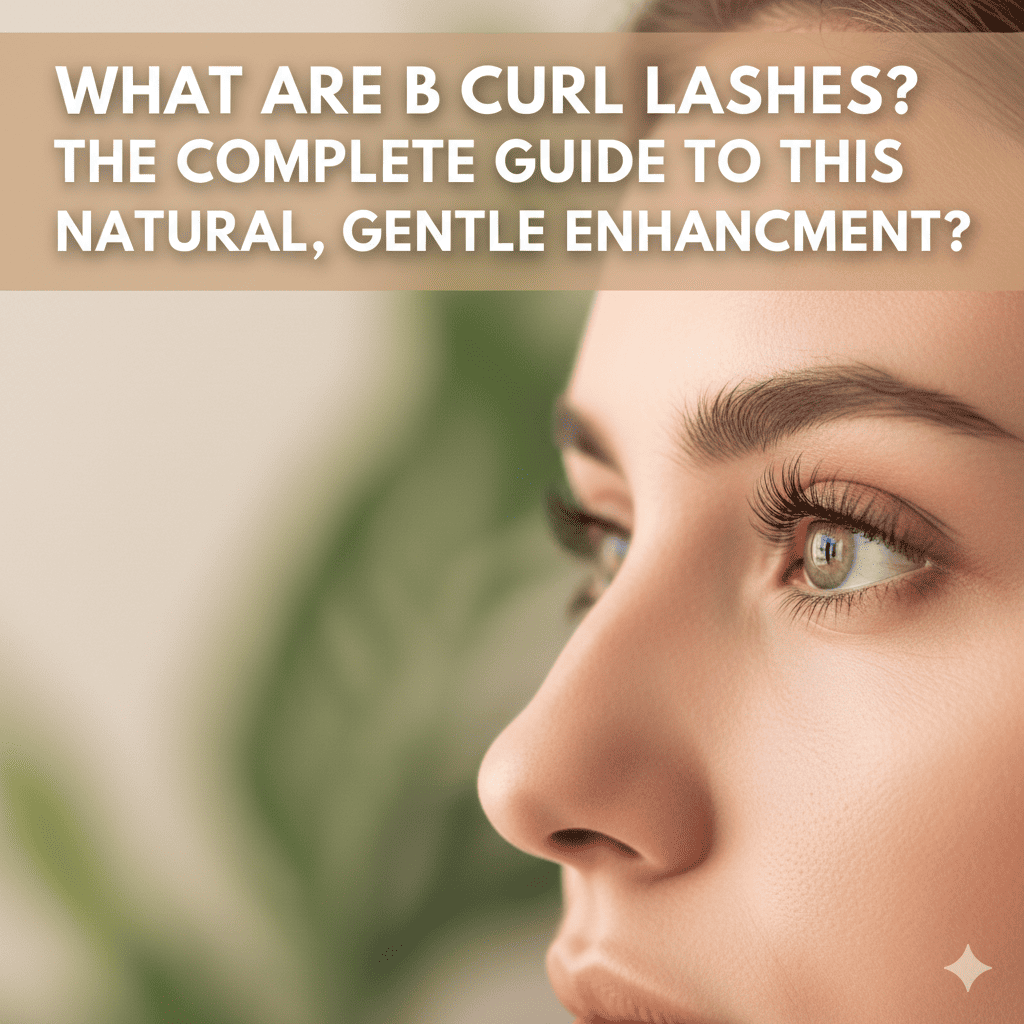Part 1: Introduction to Lash Extension Allergies and Their Management
The Rising Trend of Lash Extensions
In recent years, the popularity of eyelash extensions has soared, revolutionizing the beauty industry. For many, they are an essential part of their beauty regimen, offering a seamless way to enhance natural beauty. This surge in popularity, however, brings with it an increased focus on the potential side effects, particularly allergies related to lash extensions.
Understanding Lash Extension Allergies
Lash extension allergies are a significant concern for both clients and technicians. These allergic reactions are primarily associated with the ingredients in the lash adhesive, such as cyanoacrylate and latex. It is crucial to understand that while these reactions are not widespread, their impact can be severe, causing discomfort and dissatisfaction among clients.

The Role of Lash Technicians in Allergy Prevention
As a lash technician, it is imperative to be well-informed about the potential allergens in various lash adhesives. Knowing the lash glue ingredients is the first step in identifying and preventing possible allergic reactions. Using hypoallergenic eyelash extension glue or sensitive lash extension glue can significantly reduce the risk of allergic reactions.
Educating Clients
Education plays a vital role in allergy management. Technicians should educate their clients about the eyelash extension allergic reaction treatment, signs to watch for, and the importance of reporting any discomfort immediately. This proactive approach not only ensures the safety and comfort of the client but also builds trust and confidence in your services.
Commitment to Safety and Quality
In the quest to provide the best service, prioritizing the health and safety of clients is non-negotiable. This includes choosing high-quality, safe products, like those from Universe Beauty Lashes, and staying updated on the best practices in allergy prevention and care. Offering a range of products, including vegan eyelash glue and eyelash adhesive for sensitive eyes, can cater to the diverse needs of clients.
Part 2: Unraveling the Causes of Lash Extension Allergies
The Complex World of Lash Adhesives
Understanding the complex composition of lash adhesives is essential in identifying allergy triggers. The primary ingredient of concern in most lash glues is cyanoacrylate, known for its strong bonding properties. While effective, it can cause allergic reactions in some individuals. Additionally, lash glue without cyanoacrylate and latex free lash extension glue are becoming popular alternatives for sensitive clients.
Common Allergens in Lash Products
Apart from cyanoacrylate, other potential allergens in lash products include latex and certain preservatives. For clients with known sensitivities, eyelash adhesive for sensitive eyes and hypoallergenic lash extension glue are safer options. Being aware of the lash glue ingredients helps in selecting products that minimize the risk of allergic reactions.

Environmental and Individual Factors
Environmental factors like humidity and temperature can affect how lash adhesives cure and potentially contribute to allergic reactions. Individual factors, such as a client’s skin type and any existing allergies, also play a critical role. Conducting a thorough client consultation to understand their medical history and sensitivities is crucial.
The Impact of Technique
The application technique itself can influence the likelihood of an allergic reaction. For instance, improper application can lead to lash adhesive coming into direct contact with the skin, increasing the risk of a reaction. Using techniques that minimize skin contact and ensuring the proper curing of the adhesive are important preventive measures.
Sensitivity Over Time
It’s worth noting that sensitivity to lash adhesives can develop over time. A client may not initially show any allergic signs but could develop a reaction after repeated exposure. This necessitates regular check-ins with clients regarding any changes in their sensitivity levels.
The Role of Patch Testing
Patch testing remains an invaluable tool in allergy prevention. By applying a small amount of adhesive to the skin and observing for any reactions, lash technicians can better assess a client’s sensitivity to the product. This step is particularly crucial for clients with a history of skin sensitivities or allergies.
Educating Clients on Potential Allergens
Part of a lash technician’s role is to educate clients on potential allergens. This includes discussing the ingredients in the products used, such as lash sensitive glue or hypoallergenic eyelash glue, and their possible effects. Providing clients with this knowledge empowers them to make informed decisions about their lash extension treatments.
Balancing Safety with Client Desires
While the desire for long-lasting and aesthetically pleasing lash extensions is understandable, safety should always be the top priority. Lash technicians must balance meeting clients’ aesthetic desires with the need to use products that will not compromise their health, such as best lash extension glue for sensitive eyes.
Part 3: Identifying and Addressing Lash Extension Allergic Reactions
Recognizing the Symptoms
The first step in managing allergic reactions to lash extensions is recognizing the symptoms. Clients may experience various symptoms such as itchy eyes after lash extensions, swollen eyes from lash extensions, or redness and irritation. It’s crucial for lash technicians to be vigilant and able to identify these signs early.

Importance of a Detailed Client Consultation
A thorough client consultation is key in preempting potential allergic reactions. This involves discussing any history of allergies to eyelash extensions or general skin sensitivities. Understanding a client’s health background helps in choosing the most suitable adhesive, such as hypoallergenic lash glue or sensitive lash extension adhesive.
Immediate Response to Allergic Reactions
In the event of an allergic reaction, such as swollen eyelids from lash extensions or eyes irritated after eyelash extensions, immediate action is necessary. This might include the removal of the lash extensions and advising the client to seek medical attention, especially in cases of severe reactions like chemical burn in eye from eyelash extensions.
Long-term Management and Care
Managing a client’s allergies goes beyond the immediate response. Providing advice on long-term care, such as using eyelash extension glue for sensitive eyes for future appointments or suggesting a break from extensions, is part of responsible aftercare.
Training and Preparedness
Lash technicians should be well-trained in dealing with allergic reactions. This includes knowing the steps to take when a client experiences a reaction, like lash extension allergic reaction or allergy to lash glue, and how to minimize discomfort and potential harm.
Client Education on Aftercare
Educating clients on proper aftercare is crucial in preventing further irritation. Instructions on how to care for their extensions, what products to avoid, and signs to watch for, such as itchy lash extensions, are essential components of this education.
Building a Trusting Relationship
Handling allergic reactions professionally and empathetically is vital in building trust with clients. Being knowledgeable and prepared reassures clients that their well-being is a top priority, fostering a loyal customer base.
Tailoring Services to Individual Needs
Customizing lash extension services to meet the individual needs of clients, especially those with sensitivities, is crucial. Using products like best eyelash glue for sensitive eyes or lash extension glue for sensitive eyes can make a significant difference in preventing allergic reactions.
Part 4: Prevention Strategies for Lash Extension Allergies
Proactive Measures in Allergy Prevention
The adage “prevention is better than cure” is especially pertinent when it comes to lash extension allergies. As a lash technician, adopting proactive measures can significantly reduce the risk of allergic reactions in clients.
Implementing Patch Testing
Patch testing is a critical step in allergy prevention. Before applying lash extensions, a small amount of adhesive, such as sensitive lash extension glue or hypoallergenic lash glue, should be applied to the client’s skin to check for reactions. This simple test can prevent severe allergic reactions like swollen eyes from lash extensions.

Choosing the Right Products
Selecting the appropriate products is key in minimizing allergic reactions. Options like lash glue for sensitive eyes, vegan eyelash glue, and eyelash glue without cyanoacrylate cater to clients with sensitivities, reducing the likelihood of reactions like itchy eyes after lash extensions.
Maintaining a Clean and Safe Work Environment
A clean work environment is essential in preventing lash extension allergies. This includes sterilizing tools, using disposable applicators, and maintaining a hygienic space. Such practices help prevent issues like eye irritation from lash extensions.
Educating Clients on Potential Risks
Client education is an ongoing process. Informing clients about potential risks and what signs to look out for, such as redness or irritation from lash extensions, empowers them to make informed decisions about their lash treatments.
Regularly Updating Skills and Knowledge
Staying updated with the latest products and techniques in lash extension application is crucial. Continuous learning helps in identifying better products and methods, like best lash glue for sensitive eyes or hypoallergenic eyelash extension glue, to reduce the risk of allergic reactions.
Customizing Lash Treatments
Tailoring lash treatments to each client’s specific needs and sensitivities is an effective strategy for allergy prevention. This includes using adhesives like sensitive eyelash extension glue or hypoallergenic eyelash glue for clients prone to allergies.
Encouraging Open Communication
Fostering an environment where clients feel comfortable discussing their concerns or previous experiences with allergies, such as reactions to eyelash glue or swollen eyelids from lash extensions, is important. This open communication helps in preempting potential issues.

Part 5: Treatment and Aftercare for Lash Extension Allergies
Immediate Steps for Allergic Reactions
When a client experiences an allergic reaction, such as swollen eyes from lash extensions or itchy eyes after lash extensions, immediate and appropriate action is crucial. The first step is often the removal of the lash extensions to alleviate the reaction. Recommending over-the-counter antihistamines can also help reduce symptoms like itching and swelling.
Seeking Medical Advice
In cases of severe reactions, such as chemical burn in eye from eyelash extensions or intense swelling, it’s important to advise clients to seek medical attention promptly. Professional medical advice ensures the right treatment is given and prevents further complications.
Long-term Care and Recovery
After an allergic reaction, discussing long-term care options with the client is essential. This may include taking a break from lash extensions to allow the eyes to fully recover and considering alternative options like lash glue for sensitive eyes or hypoallergenic lash extension glue for future applications.
Educating Clients on Aftercare
Providing clients with detailed aftercare instructions is vital in preventing further irritation. Recommendations may include avoiding rubbing the eyes, using gentle, non-irritating cleansers, and avoiding makeup or other products that could aggravate the eyes.
Role of Lash Technicians in Client Recovery
Lash technicians should follow up with clients who have experienced allergic reactions. This follow-up can include checking on the recovery process and providing advice on how to avoid future reactions, such as opting for sensitive lash extension adhesive.
Preventing Future Reactions
For clients who have experienced allergic reactions, future lash extension applications should be approached with caution. Using hypoallergenic eyelash glue and conducting patch tests before any future treatments are effective ways to prevent recurring allergic reactions.
Conclusion: Safeguarding Beauty with Knowledge and Care
As we conclude our comprehensive guide on lash extension allergies, we’ve equipped you with the knowledge and strategies to prevent, identify, and manage these reactions effectively. The health and comfort of your clients are paramount, and with this guide, you’re better prepared to uphold the highest standards in lash extension services, ensuring each client leaves not only looking beautiful but feeling confident and cared for.
Elevate Your Lash Services with UBLash
Ready to enhance your skills and offer your clients the safest and most comfortable lash extension experience? UBLash is here to support you. We offer a range of hypoallergenic and sensitive adhesives tailored for all client needs, ensuring the best care for your clients. Visit our website to explore our products, and remember, with the right knowledge and resources, you can make every lash extension experience a safe and delightful one. Reach out to UBLash today – where beauty and safety meet.

Fanny
Lash Technician
Hi, I’m Fanny, the author of this post.
Over the past 5 years, we have assisted numerous lash salons and technicians across 20 countries to build their lash brand and grow their businesses with high-quality lash extension products.
If you have any questions or need assistance, feel free to reach out for a free consultation or to discuss tailored solutions for your business needs.
More Interesting Posts
Bulk Lash Extension Purchasing: MOQ Negotiation & Volume Discounts

Natural vs Dramatic: The Ultimate C Curl vs D Curl Comparison Guide

B Curl vs C Curl vs D Curl: Which Eyelash Extension Curl is Right for Your Eye Shape?

